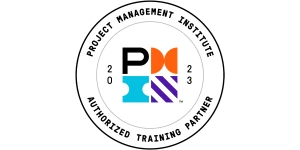Due Diligence: Fact Checking your Practitioners
It’s the middle of the summer and you’re probably strategizing what’s next for your career come the end of August. Whether you are a recent college graduate, or just looking for new career opportunities, enrolling in a Six Sigma training program is a great way to gain valuable skills that will set you apart from others. There are numerous programs you can choose from. From certification courses to week-long training programs, such as ours, you’re sure to find the right program for you. However, before you become too invested in your Six Sigma journey, it’s always good to be proactive and fact check your practitioners. In today’s article, we will give you a few, easy to use ways to practice due diligence when starting your Six Sigma program.
Illegitimate Practitioners & Six Sigma
In the past decade, Six Sigma programs have grown increasingly popular. With multiple programs available in almost every city, it’s no surprise that there are hundreds of courses to choose from. Yet, not all Six Sigma courses are alike. In our recent article, we discussed how Six Sigma suffers without the guidance of a central governing body. As a result, there are numerous illegitimate practitioners who slide past verification and offer poor certification and training programs. The best way to combat this is with due diligence.
Check the Syllabus
First, always ask your practitioner for a course syllabus. Sometimes, practitioners may be reluctant to provide you with a comprehensive list of every subject you will cover. However, every legitimate trainer will offer you a basic syllabus for your specific program. In this syllabus, you should see how many days or weeks the program is, what major topics you will discuss, and what you will gain from it. For example, here is the overview of our Six Sigma Black Belt training program. You should be able to find something similar.
Find Reviews
Next, read reviews of the course. Regardless if you’re enrolling in a certification course or a training program, there will be reviews of the courses somewhere. Sometimes, reviews will be online. Other times, you may have to request them directly from the practitioner. These reviews should be from former students and professionals, or possibly organizations who use the program for their staff. Either way, you should always be able to find reviews of legitimate Six Sigma courses. If you cannot, start looking somewhere else.
Make Comparisons
Likewise, the third way to practice due diligence is to compare your course with other well-known Six Sigma programs. Of course, there are new programs being introduced every day. However, every legitimate program will have a similar structure or outline to those of well-established ones. If you find that your course differs greatly in the duration, structure, or cost, it might be wise to find a different program.
Although not all due diligence practices are bullet proof, these tips will help protect you from illegitimate Six Sigma practitioners. Six Sigma training and certification is an excellent way to widen your skill set and learn new, innovative methodologies. However, always be wary of practitioners who will try to take advantage of your desire to learn.
SixSigma.us offers both Live Virtual classes as well as Online Self-Paced training. Most option includes access to the same great Master Black Belt instructors that teach our World Class in-person sessions. Sign-up today!
Virtual Classroom Training Programs Self-Paced Online Training Programs







